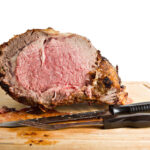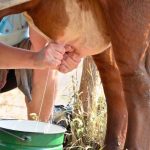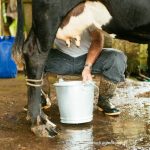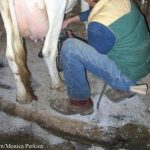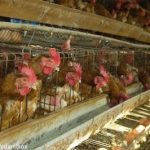United States Senator Jon Tester (D-Montana) has introduced a bill to suspend beef imports from Brazil after there have been repeated issues with delayed reporting of Bovine Spongiform Encephalopathy (BSE), or Mad Cow Disease, in beef products. The legislation would force a systemic review of the beef's safety before imports could resume. Tester said in a statement, "Montanans demand the highest level of safety and certainty in their beef, and Brazilian imports aren’t making the cut. Folks expect their beef to have been rigorously tested against the strictest of standards, and concerns about Brazilian imports not only jeopardize consumer trust, but present a serious risk to Montana producers. We owe it to our domestic producers and consumers to halt Brazilian imports until we can … [Read more...]
Virginia Raw Milk Bill Fails in House of Delegates
The Virginia House of Delegates voted against House Bill 2030, which would have legalized the sale of raw milk. The vote was 6 to 15. The bill would have allowed the sale of unpasteurized milk along with other uninspected and unregulated foods at farmers markets, at producer's homes, and on farms. The Virginia Department of Health and the Virginia Department of Agriculture and Consumer Services both have pages on their web sites that warn against the consumption of raw milk. The page on the DOH site answers myths about raw milk and sets the record straight. For instance, the statement "Pasteurization kills all of the nutrients and enzymes present in raw milk," is debunked with this statement, "Pasteurization of milk does not significantly change its nutritional value. You will … [Read more...]
Montana Legislator Introduces Raw Milk Bill
A legislator in Montana has introduced a bill that would make raw milk sales legal in that state. HB 325 creates exemptions for raw milk products. The bill is scheduled for a hearing on February 9, 2017. The bill would legalize herd and animal share programs, and would allow the sale of raw milk to consumers on the farm. A herd share is where people buy shares in cows on a farm, then they receive the products from that animal. Jim Murphy, Bureau Chief of the Montana Department of Public Health and Human Services testified against another raw milk bill on January 28, 2015. He said, "when [our department] examines the well documented risks of consuming raw milk and compare those with the limited benefits, we cannot support making a product that can be potentially harmful more … [Read more...]
ND Bill Would Permit Raw Milk Sales; Prohibit Warning Labels
A new bill introduced to the North Dakota Legislative Assembly's Joint Agriculture Committee would not only permit the sale of raw milk in that state, but would prohibit any warning labels on the product and shift the risk burden to consumers. House Bill No. 1433 is supported by Representatives Luke Simmons, Rick C. Becker, Daniel Johnston, Dwight Kiefert, Jeffery Magrum, Kim Koppelman,, Christopher Olson, Nathan Toman, and Mike Schatz. Senators Oley Larsen and Jordan Kannianen also support it. The milk must be sold directly from the producer to the consumer and be only for home consumption. The milk can be sold at a farm, ranch, farmers market, farm stand, or home-based kitchen. The producer must tell the consumer that the milk is not "certified, labeled, licensed, packaged, … [Read more...]
Raw Milk Bill Back in Wisconsin Legislature
A bill to legalize the sale of raw milk is back in the Wisconsin legislature. Republican Representative Dave Murphy introduced a bill last week that would let dairy farms sell raw milk and raw milk products directly to customers where they are produced. The farmers would not need state milk producer licenses or permits, and state milk quality rules would not apply to these products. At this time, selling raw milk is illegal in Wisconsin. "Incidental sales" of raw milk directly to consumers at a dairy farm for consumption by that consumer, the consumer's family, or nonpaying guests, is exempted from the law. But if done on a regular basis, or if the sales involve advertising, those sales are deemed illegal. Dairy farmers who are considered "bona fide" owners can consume raw milk from … [Read more...]
California Sets Strictest Antibiotic Standards for Factory Farm Use
California has just passed a law setting the strictest standards for antibiotic use in farm animals in the country. Senate Bill 27, which was enrolled September 26, 2015, prohibits the administration of "medically important antimicrobial drugs, as defined, to livestock unless ordered by a licensed veterinarian through a prescription or veterinary feed directive." The bill prohibits using antibiotics solely for purposes of gaining weight or improving feed efficiency. The governor's signing statement states "SB 27 addresses an urgent public health program. The science is clear that the overuse of antibiotics in livestock has contributed to the spread of antibiotic resistance and the undermining of decades of life-saving advances in medicine." The FDA set voluntary standards last year … [Read more...]
House of Representatives Passes DARK Act
Center for Food Safety is expressing "deep disappointment" that the Republican-controlled House of Representatives passed H.R. 1599, a bill that will not allow state and local governments to label and regulate genetically engineered foods. The bill codifies a voluntary labeling system approach, blocks the FDA from ever implementing mandatory GE food label, and would let food companies make misleading claims about how "natural" GE foods are. The bill is officially named The Safe and Accurate Food Labeling Act of 2015. But opponents have dubbed it Deny Americans the Right to Know (DARK) Act. Andrew Kimbrell, executive director of Center for Food Safety said in a statement, "passage of this bill is an attempt by Monsanto and its agribusiness cronies to crush the democratic … [Read more...]
Senators Introduce COOL Labeling Legislation
U.S. Senators Debbie Stabenow (D-MI) and John Hoeven (R-ND) have introduced new bipartisan legislation to address country-of-origin labeling (COOL) following the World Trade Organization (WTO) ruling against the United States in May 2015. The legislation, called the Voluntary County of Origin Labeling (COOL) and Trade Enhancement Act of 2015 would comply with that ruling, and would put in place a voluntary label. This label would help consumers know where their food comes from and should confirmed with the WTO's ruling. The labels could say "Product of the U.S." Stabenow said in a statement, "Michigan farmers and ranchers take pride in raising the world's safest and most affordable foods, and parents in Michigan want to know as much as possible about what their kids are eating. If … [Read more...]
CFA Statement on House COOL Vote
Chris Waldrop, director of the Food Policy Institute at the Consumer Federation of America released a statement about the house vote on country of origin labeling (COOL). Last week, the House voted to repeal COOL, meaning that labels on meat, pork, and chicken would no longer have to state where the food came from. He said in a statement, "yesterday the House voted to deny American consumers basic information about where their food comes from. In supporting a repeal of country of origin labeling for meat, pork, and chicken, Congress bowed to overblown threats of retaliation from Canada and Mexico and took action prematurely before the case at the WTO was fully settled." The World Trade Organization has repeatedly ruled against the United States on this matter. Canada and Mexico … [Read more...]
